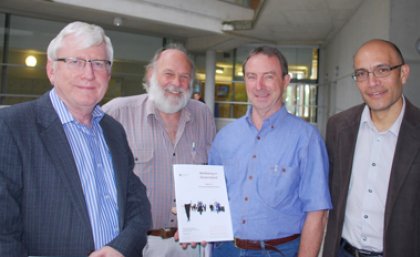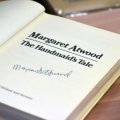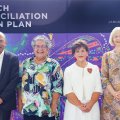
UQ's Institute for Social Science Research (ISSR) released findings of a major, three-year longitudinal study of 4000 Queenslanders on their social wellbeing by region, gender and age at a symposium last week.
Despite the pressure on infrastructure with population growth in Queensland rising from 1.8 million in 1970 to 4.6 million in 2010, the findings showed, in 2010, 76 percent were satisfied with their ability to afford essential items, 65 percent were satisfied with their health, 59 percent were satisfied with their savings and other financial assets and 53 percent were satisfied with their stress levels.
The study found respondents who were unemployed or living with a disability experienced the lowest wellbeing scores. Those retired from paid work indicated the highest wellbeing scores. There was no statistical difference between the wellbeing of males and females in Queensland.
Female respondents with children aged under 18 years of age had higher wellbeing than their male counterparts. Overall, respondents aged 30 to 49 had statistically lower wellbeing scores, as compared to other age groups.
"Despite the overall positive levels of wellbeing, the survey showed many families were struggling to afford medical and dental care with some significant differences by region," one of the study's chief investivators Professor Paul Boreham said.
In 2010, 13 percent of families surveyed were not able to afford a visit to the dentist. A higher proportion (17 percent) of Queenslanders living in the Ipswich and West Moreton regions were unable to afford a visit to the dentist.
In the 12 months leading up to the 2010 data collection, 7 percent reported not being able to keep up with payments for water, electricity, gas, or telephone, 4 percent got behind with rent or mortgage and 4 percent had to pawn or sell something, or borrow from a money lender.
Thirty percent of Queenslanders surveyed indicated public transport was not accessible for them. In remote regions, 73 percent found public transport inaccessible and 46 percent found it inaccessible in the Ipswich and West Moreton regions.
The project was jointly funded by the Australia Research Council and the Public Sector Union.
"It is rich with data that can aid in regional and state-wide planning. We collected data before and after the Queensland disasters and before and after the global financial crisis, measuring 12 indicators of wellbeing," Professor Boreham said.
The project team developed a conceptual and statistical framework to measure social wellbeing using indicators to measure wellbeing covering the domains of stress level, savings and financial assets, employment, income, health, leisure, ability to afford essentials, respect accorded by others, natural environment, personal security, housing or accommodation and family relationships.
"Conventional measures of wellbeing have focused on economic resources within a family and material consumption," Professor Boreham said.
"Income has been the main metric to measure quality of life, but it's now become clear that this measure has considerable limitations in assessing quality of life.
"The wellbeing index showed health as most important, then housing and personal security and natural environment a close third and fourth.
"The project has allowed us to develop valid alternative measures of quality of life which should provide a nationally recognised evidence base on which to develop policies of importance to the social wellbeing of Queensland's urban and regional communities."
This project has provided a unique opportunity to track the wellbeing and inequality of Queenslanders at a regional level over time. The data has been archived and the project team has encouraged researchers and policy-makers to make contact regarding the use of this data.
Media: Honor Morton on 3346 7806 or Shirley Glaister at UQ Communications on 3365 2802.
.jpg)


.png?itok=xWvYRDbm)




.jpg?itok=A3VEKM1Y)


